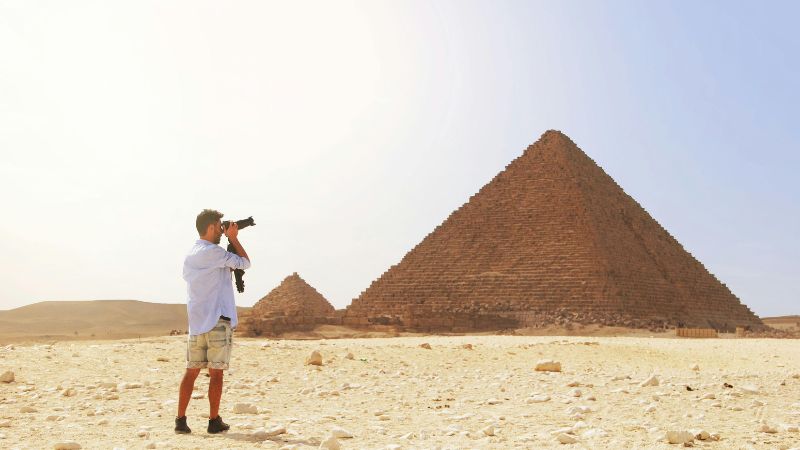Avoid Scams at the Pyramids
When visiting one of the Seven Wonders of the Ancient World, it’s important to be prepared. How to Avoid Scams at Giza Pyramids by knowing what to expect, from transportation to ticket prices, and how to handle persistent vendors. This guide will ensure your visit to the Pyramids of Giza is memorable for all the right reasons.
Getting to the Pyramids Without Stress
To avoid unnecessary stress (and potential scams), plan your transportation carefully.
- Use Uber: This is the most reliable and affordable option for reaching the pyramids.
- Enter Through the Sphinx Entrance: It’s more straightforward and has fewer touts compared to the main entrance.
- Pro Tip: Set your destination as “Pyramids View Inn” or “Pizza Hut Sphinx Entrance” to avoid detours or confusion with drivers.
Planning your route in advance is a simple way to avoid scams at the Pyramids before you even arrive.
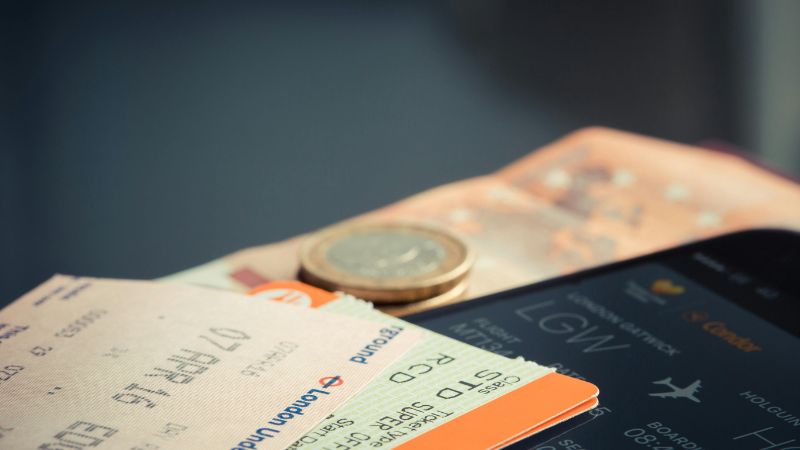
Know the Ticket Prices
Understanding the correct ticket prices is key to How to Avoid Scams at Giza Pyramids. Purchase your tickets only from the official ticket booth.
- General Entry: 700 EGP (~$15 USD) for access to the pyramids and the Sphinx.
- Inside the Great Pyramid: Additional 1000 EGP (~\$21 USD).
- Khafre Pyramid: 280 EGP (~$6 USD)
- Menkaure Pyramid: 280 EGP (~$6 USD)
- Insider Tip: Don’t overpay for entry tickets offered by unauthorized sellers outside the complex
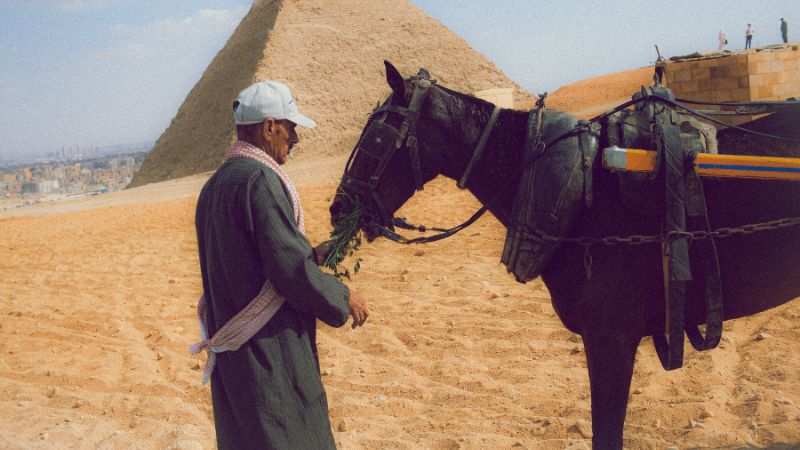
Bring Essentials
Being prepared with the right gear can save you from unnecessary expenses and help you enjoy your visit stress-free.
- Bathrooms: Available at both entrances and near the Great Pyramid, costing 5–10 EGP. Use your accommodation’s facilities for cleaner options.
- Water and Snacks: Bring your own to avoid inflated prices.
- Sun Protection: Wear sunscreen, a hat, and comfortable shoes to tackle the desert heat.
How to Handle Touts and Vendors
Persistent vendors and touts are part of the experience at the pyramids. Here’s how to manage them:
Common Scams:
- Offering “free” photos or souvenirs but asking for payment after.
- Inflating prices for camel rides or souvenirs.
- Claiming you can’t access certain areas without their help.
How to Respond:
- Politely decline: Say “Shukran katir” (Thank you very much) and continue walking.
- Avoid engaging with “free” offers, as they usually lead to payment requests.
Staying firm and polite is one of the best ways to avoid scams at the Pyramids while respecting local livelihoods.
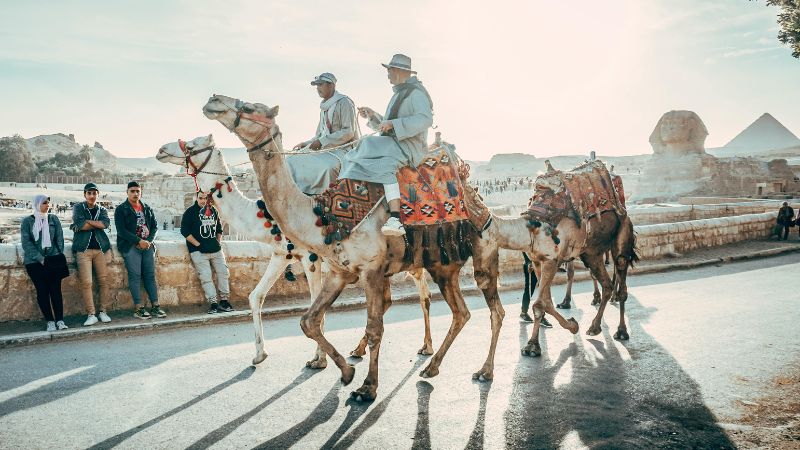
Fair Prices for Camel Rides
Camel rides are a popular activity at the pyramids but can often come with inflated prices.
Fair Price: (~$5–10 USD) for an hour-long ride to a panoramic viewpoint.
Knowing the fair price ensures you enjoy this experience while avoiding scams at the Pyramids.
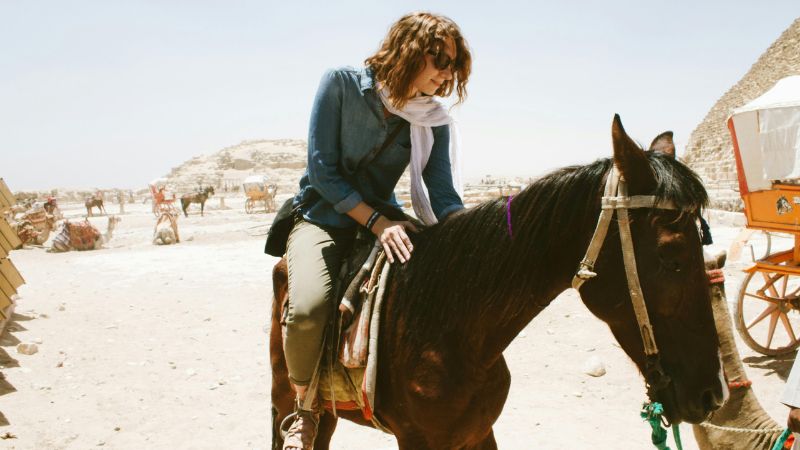
Bartering Like a Pro
Bartering is part of the experience in Egypt. Here’s how to do it effectively:
- Do Your Research: Know the typical prices for services and souvenirs beforehand.
- Walk Away Tactic: Vendors often lower their prices when you show disinterest.
- Be Polite but Firm: Keep the interaction lighthearted while standing your ground.
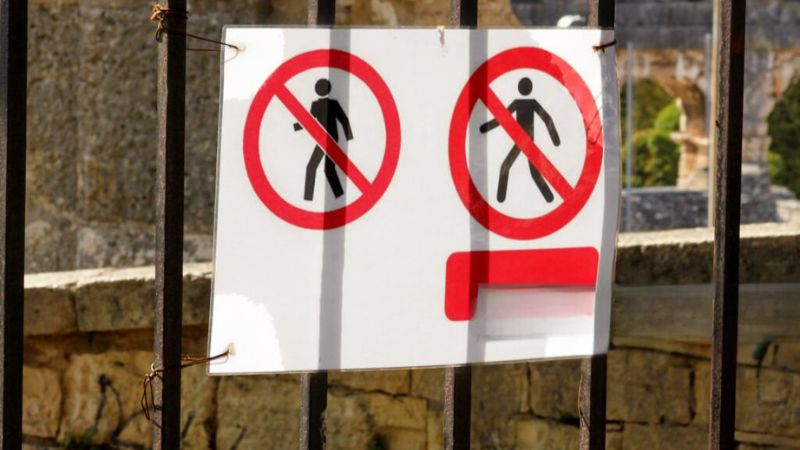
Safety at the Pyramids
The Pyramids are generally safe, but there are a few things to keep in mind:
- Strong Police Presence: You’re unlikely to encounter physical danger, but scams are common.
- Stay on Tourist Paths: Stick to popular areas and avoid wandering into isolated zones.
- Confidence is Key: Walk purposefully and set boundaries with vendors.
Additional Tips for a Hassle-Free Visit
- Timing Your Visit:
- Arrive at 7 AM to beat the crowds and the heat.
- Avoid midday during summer months for a more comfortable experience.
- Bring Essentials:
- A reusable water bottle, sunglasses, and sunscreen are must-haves.
- Carry small bills for tips and minor expenses.
- Prepare for Dust: The desert environment can be harsh—pack allergy medication if needed.
Cultural Awareness
Respect local customs to make your visit more enjoyable:
- Dress Modestly: Choose clothing that covers your shoulders and knees.
- Learn Basic Arabic Phrases: Phrases like “Shukran” (Thank you) and “La, shukran” (No, thank you) can go a long way.
Conclusion
A visit to the Pyramids of Giza is a once-in-a-lifetime experience, and with a little preparation, you can make it truly unforgettable. By knowing the fair prices, handling vendors with confidence, and coming prepared for the desert climate, you’ll navigate the area like a pro.
Enjoy your journey to one of the world’s most remarkable ancient wonders, and don’t let minor inconveniences detract from its magic!

